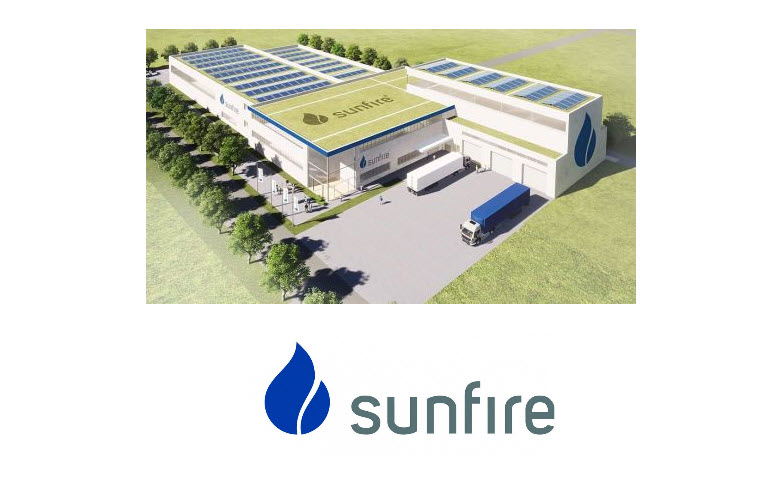
Dresden–In January 2021, Sunfire added pressurized alkaline electrolysis to its product portfolio, setting the course for rapid scaling. The company now announces the industrialization of its proven technology. In a first step, Sunfire will install a large-scale alkaline electrolyzer production site with a capacity of 500 MW/year in Germany by 2023 – with a further extension to more than 1 GW/year already in planning.1)“Since we founded Sunfire in 2010, we have believed in electrolysis to be a key technology for achieving climate neutrality. We have worked hard to develop a highly efficient and reliable technology in numerous demonstration projects. Now it is time to fully tap into its potential. We will be expanding our annual production capacity of pressurized alkaline electrolyzers from 40 MW/year to at least 500 MW/year by 2023”, says Sunfire CEO Nils Aldag. With an increasing number of countries and corporations committing to climate neutrality, the Germany-based company is experiencing enormous demand. “Ambitious regulatory initiatives to cut CO2 emissions in all sectors of the economy are fostering a rapid growth of the global hydrogen market until 2030. Hence, we are already planning a further scaling to more than 1 GW/year”, adds Aldag.
Electrolysis is the key technology to produce renewable hydrogen. As raw material and energy carrier, hydrogen is set to become the game-changer in decarbonizing carbon-intensive industries. These include the steel and chemical industries, refineries, and aviation. On the road to climate neutrality, numerous EU member states have recognized the potential of renewable hydrogen and launched national hydrogen strategies, pushing for a rapid expansion of hydrogen production capacity. While the total capacity of installed plants is still in the triple-digit megawatt range, demand in the EU alone is expected to rise to 40 GW by 2030. Recently, the International Energy Agency (IEA) calculated that by then 850 GW of electrolysis capacity will be needed worldwide to reach climate neutrality by 2045.
Sunfire has been best known for its innovative high-temperature electrolyzers (SOEC) and is considered the market leader in this segment. “Thanks to its unsurpassed efficiency, SOEC will be the preferred electrolysis technology in various industries”, says Nils Aldag. Before Sunfire’s SOEC technology can be used at industrial scale, it needs to be further developed at full speed. “In order to satisfy the large demand of our customers already today, we will be expanding our production capacity for alkaline electrolysis,” explains the Sunfire CEO. “We are ready for hydrogen projects in the 100 MW scale!”
The robust pressurized alkaline technology has proven itself in dozens of industrial projects over several decades around the globe. To capitalize on this advantage, in January 2021, Sunfire acquired Swiss alkaline electrolyzer company Industrie Haute Technology SA (IHT), which has more than 70 years of global operating experience. Sunfire’s customers are now benefiting from this decision. “We can offer our customers the most reliable and cost-effective technology currently available in the market. As soon as we start the mass-production of our alkaline electrolyzers, the cost of producing electrolyzers and, thus, renewable hydrogen will drop even further”, explains Sunfire COO Bernhard Zwinz, who has successfully scaled industrial production facilities in the past.
Footnote
1) The final investment decision should be made upon completion of site selection. The decision is subject to obtaining the necessary financing, including those requested within the framework of the IPCEI process. In May 2021, Sunfire was selected for funding support within the framework of a joint European hydrogen project (“Hydrogen IPCEI” – Important Project of Common European Interest) by the Federal Ministry of Economic Affairs and Energy and the Federal Ministry of Transport and Digital Infrastructure. In the coming months, the European Commission will be conducting a notification procedure to examine compatibility with EU state aid law.
Read the most up to date Fuel Cell and Hydrogen Industry news at FuelCellsWorks




